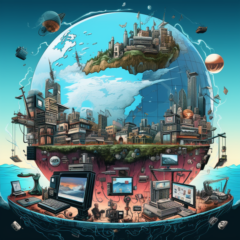
In the realm of personal development and problem-solving, we often encounter a spectrum of challenges. Broadly, these can be categorized into three types: the things we know, the things we don’t know, and the elusive category of things we don’t even realize we’re ignorant of. Each category represents a unique approach to learning and self-improvement.
The Known and the Unknown
Firstly, there are problems we are aware of. These are the challenges we can identify and understand. Addressing them is often a matter of applying known solutions or skills. However, more intriguing are the problems we don’t know. These unknowns can be a source of fear or anxiety, but they also represent opportunities for growth and learning.
The Unknown Unknowns
The third category, the things we don’t know we don’t know, is perhaps the most fascinating. These blind spots in our knowledge and understanding can lead to unexpected challenges but also to significant breakthroughs in personal growth and learning.
Reframing Challenges: “How Can I Do It?”
When confronted with a challenge, especially in the latter two categories, it’s easy to fall into a mindset of “I can’t do it.” However, a more constructive approach is to reframe this thought into “How can I do it?” This shift in perspective opens the door to creative problem-solving and proactive learning.
The Roof Leak Analogy
Consider the analogy of fixing a leak in a roof. One might choose to simply plaster over the problem, but this is often a short-term solution that can lead to more significant issues in the long run. Instead, addressing the issue at its source, though it may require more effort and understanding, leads to a more sustainable solution. This approach can be applied to personal challenges as well, where understanding the root cause of a problem is more effective than superficially addressing its symptoms.
Evolving Your Learning: Compound and Grow
Learning and personal development can be compared to finding a nugget of gold or planting a seed. Each small discovery or lesson learned can compound over time, leading to significant personal growth and development. This process of continuous learning and evolution is critical in navigating both the known and unknown aspects of our lives.
Perspective: Seeing Failure as Feedback
Finally, it is essential to view failure not as a setback, but as valuable feedback. Failure is an integral part of the learning process, providing insights and lessons that can guide future actions and decisions. By embracing failure as a part of the journey, we open ourselves to continuous improvement and resilience in the face of challenges.
Conclusion
In conclusion, by understanding and categorizing the problems we face, reframing our approach to challenges, and seeing failure as an opportunity for feedback, we can evolve our learning and grow in all aspects of life. It’s a journey of embracing the unknown, and it begins with a shift in perspective.
